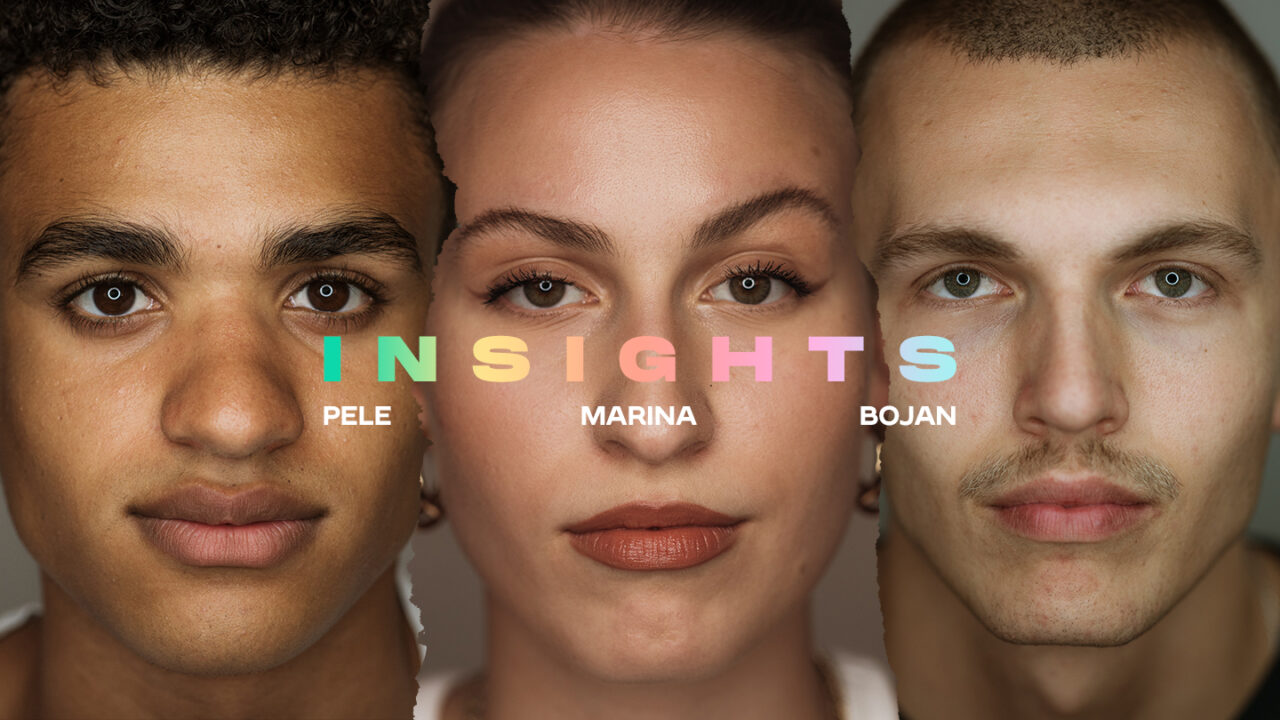The past months have shown us the importance of re-thinking and re-evaluating the way we engage with each other and what roles our individual lives play on a broader scale. Being built on the foundation of community, we have decided to introduce a new project titled ‘Insights’.
In an on-going interview series, we sit down with our Berlin sports community members, give them a platform to speak, and listen to their stories. As we understand this project not only as an interview series but as a dialogue with the Berlin sports community, the importance of listening to one another and keeping the conversation going is a process that we intend to deal with in a transparent manner. So far this new journey has not only enabled us to double-check certain dynamics within our microcosm but also strengthened our belief that the stories we tell as a community are a summary of all of the individual stories that we are made of.
While our goal has always been to bring people together, we feel like it is overdue to also address how our community lives different experiences based on their subjective histories. ‘Insights’ is a first step towards embracing these different life-realities and highlighting how they collectively form the Braves. This is the fifth round of members that we have sat down with to listen to them.
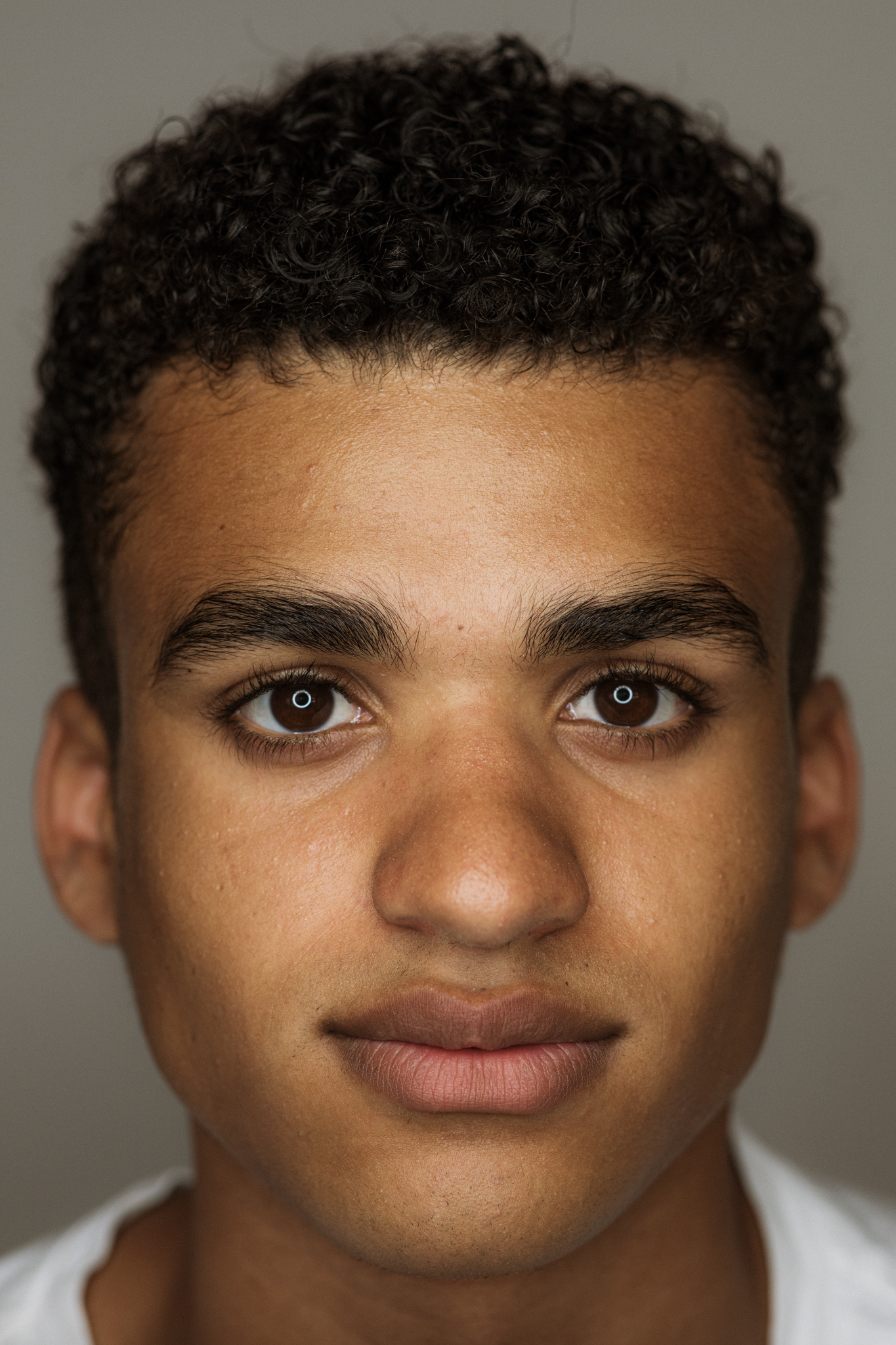
Who are you?
Marina: My name is Marina. I’m 21 years old – born and raised in Berlin.
Bojan: I’m Bojan, 25 years old. I’m a student, basketball player, and someone who tries to make people laugh and connect them.
Pele: I’m Pele, 20 years old and I was born in London. I moved to Berlin when I was six and started doing modern pentathlon 12 years ago. I joined the German national team in 2015 and participated at the Youth Olympic Games in Buenos Aires in 2018. I’m training to take part in the Olympic Games in Paris in 2024. I am also studying law.
What is Berlin for you? Hometown? The City of Choice?
Pele: Berlin made me grow up fast – it made me very mature and independent.
Bojan: Growing up here has taught me the importance of being open to different realities and people. In 10th grade, I lived in the US for a year. This enabled me to gain another perspective on different societies and their value systems. I lived in a small town in Texas where people were rather narrow-minded. Witnessing their world views helped me to appreciate my upbringing in Berlin.
After my stay in the US, I got to know a different side of Berlin through the basketball community. I started spending more time in different districts of the city and met people from different backgrounds. Through these experiences, I became more open and realized how important it is to connect and approach people. I am immersed in different scenes in Berlin. This has opened up my horizon to different ways of life. It made me realize that if you don’t engage with various people you deny yourself a lot of knowledge and experiences.
Through my girlfriend, I have a lot more access to the LGBTQ + community and thus have learned quite a bit about this group. I believe, that in the basketball community it is hardly possible to talk about different sexual orientations and gender identities that are not cis or heteronormative. I think a lot of people lack the connection to the LGBTQ + community, which often leads to them being biased.
There are so many misconceptions about anything gender and sexuality – why do straight guys always assume that every gay guy is into them? Or why do I have to say “no homo” after complimenting my friend on his outfit?
Marina: The older I got, the more I noticed that you can always reinvent yourself in this city. You are able to rebrand yourself. I’m inspired by the creative ethos of the city that is not necessarily aesthetic. Berlin is so far ambivalent, as it is very anonymous. Anonymity is something positive because it allows you to follow your own path regardless of the opinions of others. At the same, time it sometimes causes you to feel alone and lost.
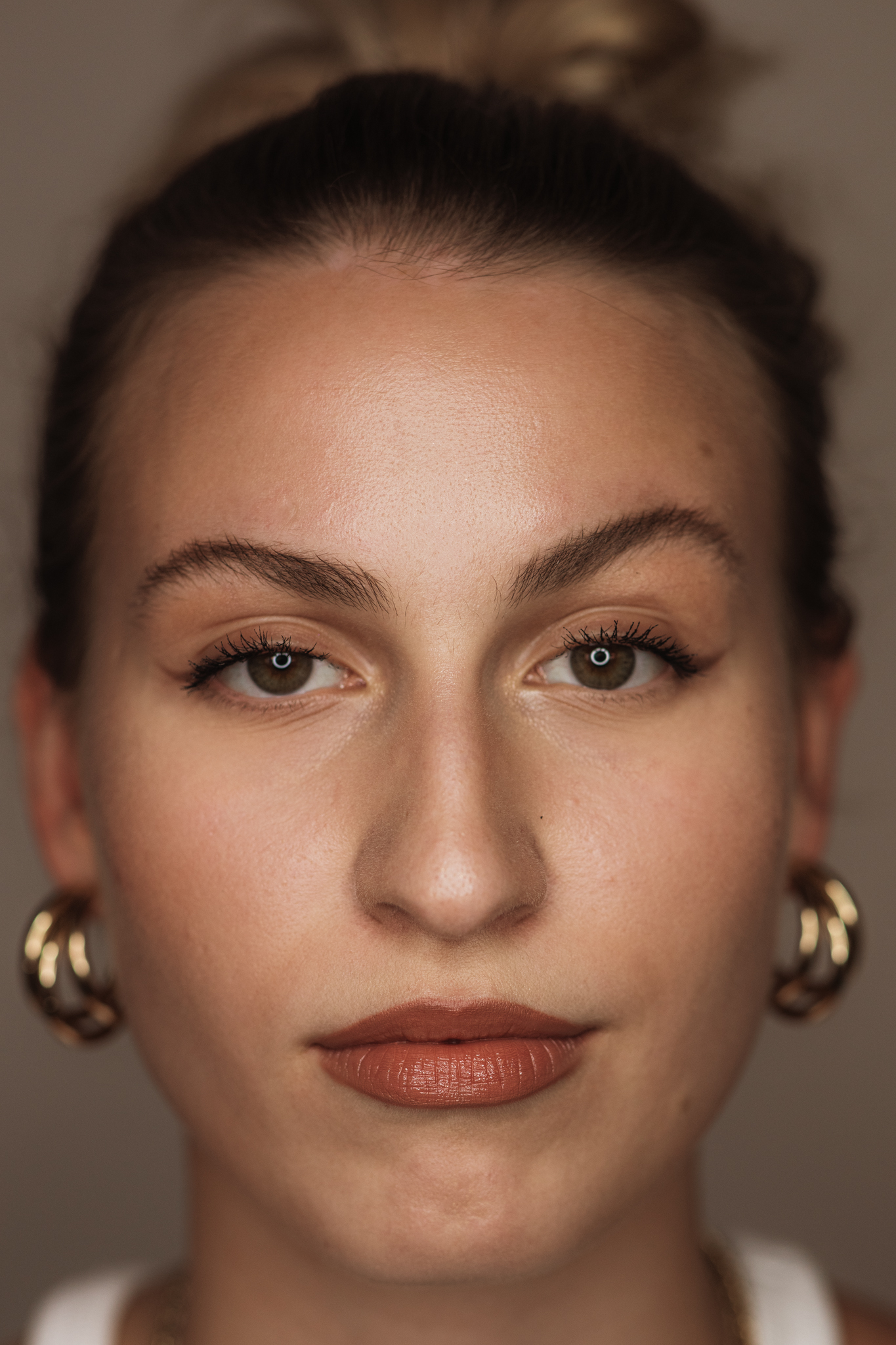
How has living in Berlin impacted your self-understanding?
Pele: Berlin made me grow up fast – it made me very mature and independent.
Bojan: I like to first observe very carefully before I approach other people. Still, I would say that I basically always stay myself. Of course, I’m a bit different depending on the environment, but I always try to be myself. I don’t want to pretend to fit in. I try to stand up for my own principles in every context in which I find myself – from politeness to an openness to different social groups.
Marina: The older I got, the more I notice that you can always reinvent yourself in this city. You are able to rebrand yourself. I’m inspired by the creative ethos of the city that is not necessarily aesthetic. Berlin is so far ambivalent, as it is very anonymous. Even when you know a lot of people, you can still feel like you know no one. Anonymity is something positive because it allows you to follow your own path regardless of the opinions of others. At the same time, it sometimes causes you to feel alone and lost.
Do you perceive yourself differently in varying locations? If so, how?
Pele: Whenever I’m in London, I’m almost shocked by the amount of BiPoC, because there are so few here in Berlin. Although I surround myself with a lot of BiPoC, it’s a different story to constantly meet people who look like you. At the same time I am aware that although in cities like Paris or London you see many more people of color on the street, these are often people who occupy low-income jobs. That is why I would not necessarily say that I automatically feel better as soon as I see more BiPoC. It also reminds me of the economic hardships of people of color.
Marina: My parents are from Croatia which is why I spend a lot of time there. I’ve noticed that I adapt to my surroundings. I dress differently because each city has its own vibe, which then allows me to perceive different versions of myself. I’m more self-aware in Croatia, because I am not as familiar with the lifestyle compared to Berlin. Here, I have a feeling for how people think and go about their lives. I see myself more clearly when I’m there because I’m not in my usual environment.
How comfortable I feel in a place depends on the circumstances. It has a lot to do with my own state of mind. I feel good when I’m in a surrounding that allows me to be who I am. It depends on the people around me and that’s why I can feel comfortable or uncomfortable in any place.
Bojan: I like to first observe very carefully before I approach other people. Still, I would say that I basically always stay myself. Of course, I’m a bit different depending on the environment, but I always try to be myself. I don’t want to pretend to fit in. I try to stand up for my own principles in every context in which I find myself – from politeness to an openness to different social groups.
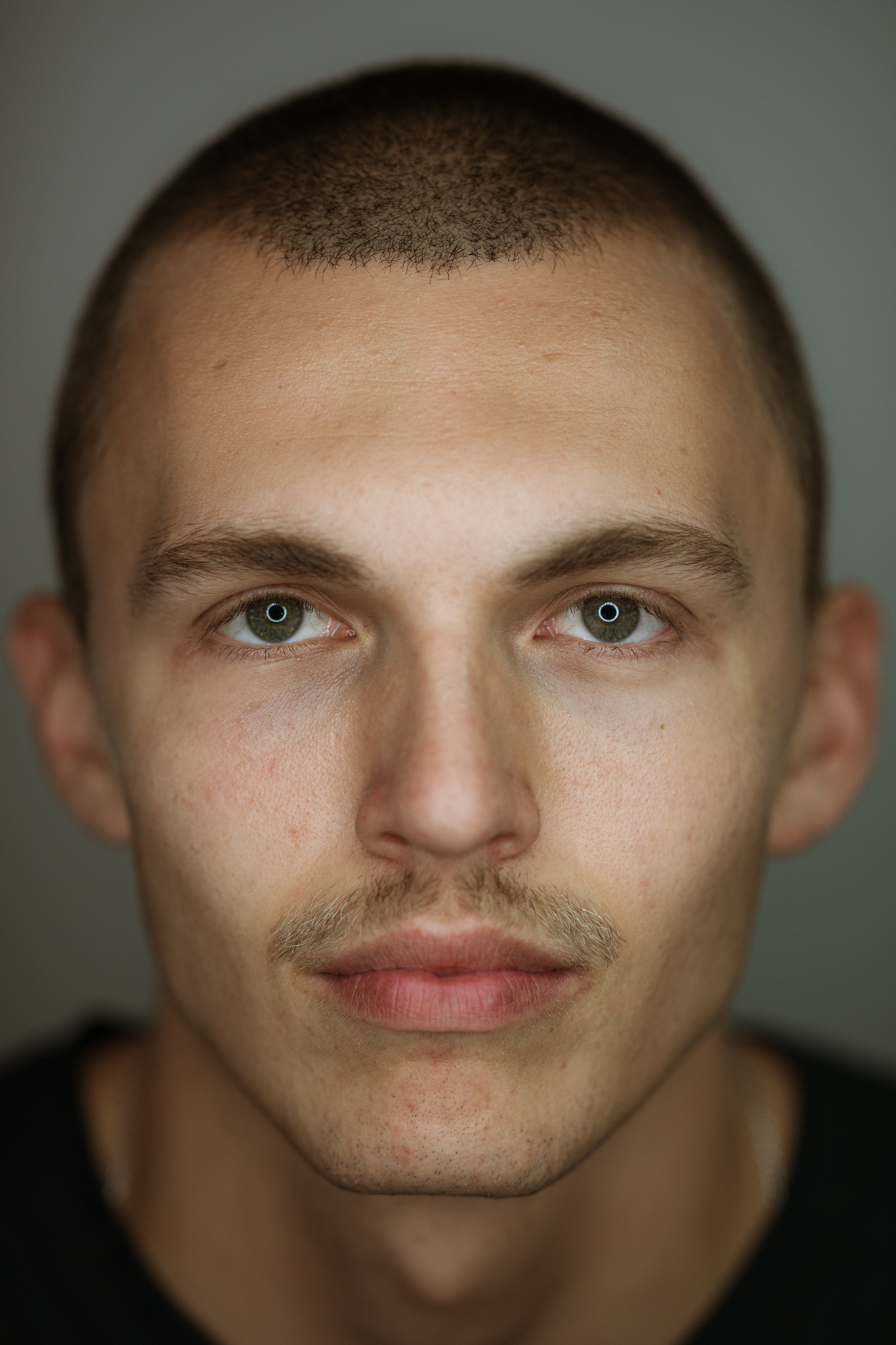
What‘s your definition of community? What’s the power of The Berlin sports Community?
Marina: I think you can be part of several communities and each community represents a part of yourself. Community can teach you, inspire you, criticize you and help you advance. Community symbolizes input with which you can identify. You grasp different values from each community and you can then integrate them into other circles.
The power of community is cohesion, the exchange of ideas and creativity. Community is reciprocity. By meeting different people in a community, you can grow and encourage others to grow.
Bojan: I think you can define yourself through community. Community brings people from different backgrounds together based on the same interests. Within a community you can represent common values, if you are collectively aligned on the way you view the world.
Communality is the power of community – that I can rely on people. I will help them when they need help and vice versa. Community is not temporary – you can be away for a while and still be certain that you are welcome and well-received.
Pele: My community is my friends and their friends – my circle of acquaintances. The community doesn’t necessarily have to be people with whom I’m super close, but rather people I keep on crossing paths with. Some of these are people who have had experiences similar to mine, but also people who are in very different situations in life.
Surrounding yourself with people who positively impact your life is a powerful and supportive experience. It is important to have people around you who try to understand.
How do you perceive your role within communities?
Marina: I aspire to be someone who gives others the space to be themselves. I want people to feel that they can rely on me and ask me for help. I want to empower people. I’m a calm person, which means that sometimes I tend to listen more when I feel like I can learn a lot from others, but there are also environments where I lead the conversation – it all depends on the people.
Bojan: As someone who connects many people and tries to bring different communities together. I try to see what the needs of the people around me are and then introduce them to others. I like it connecting the dots.
Pele: I don’t like limiting myself to just one role. It all depends on what the other people need and I think that it’s your individual responsibility to understand what others need and to try to respond to it. The other way around, you also hope that the people you are surrounded by will see you and notice what you need. I think that you always have to find your way in different structures and depending on that, the specific role of yourself emerges.
What kind of people would you like to surround yourself with?
Pele: I like to surround myself with people who stay informed and encounter their surroundings with open eyes – metaphorically speaking. Self-reflection is an immensely important aspect, not only because we tend to be too preoccupied with ourselves, but also because reflection allows you to recognize that people act in the way they do because of their experiences. Everyone has a story and therefore one should not jump to conclusions and generalize, but acknowledge that not everyone has the same capabilities and chances in life.
Marina: People who are open and not afraid of change. I want to surround myself with people who help me to realize myself and with whom I can grow. I value people who allow me to speak freely and feel comfortable. A sense of support, which emerges both from critique and advice, plays a role here.
Bojan: As a guy, it is very important for me to have female friends. In the basketball community in particular there are many boys who hardly have any female friends. Having a sister and therefore having grown up with women makes it easier for me to connect with women. There are many topics that I prefer to talk about with them. By surrounding yourself with women you get a more nuanced picture of the dynamics of sexism which then allows you to reflect on your own role as a male in society. My girlfriend makes misogynistic and racist experiences on a weekly basis and I wouldn’t know about it aspect of being a Black woman if she weren’t in my life.
How can your role in a community be improved? How can you create self-improvement through the berlin sports community?
Bojan: I’ve noticed that sometimes I am too occupied with connecting other people. This causes me to put myself in the background and become less active in conversations. I would like to push people out of their comfort zone more. I could be a little more quick-witted and voice my opinion more persistently.
Through community, I could learn to address issues more directly and help to make communities more open to other groups. Communities always exclude others in a way, and I find it important to undermine this exclusivity and to advocate openness.
Marina: Don’t judge a book by its cover. Everyone has their own story and things are not always what they seem. This is a perspective that I try to be aware of. Sometimes I jump to conclusions and form opinions about people without really thinking about them. Being part of communities helps me to shed this pattern, as conversing with others enables me to understand that often people are not who you thought they were at first. Through communities you can learn the importance of open communication. In groups you can practice your ability to listen – listening not for the sake of answering but for the sake of understanding.
Pele: I want to be open and to create a safe space in which people can meet without judgment. Events like Hood Laps or Homies Half are important because they allow you to get out of your own bubble and get to know new people. I would really like to connect more people myself, both in- and outside of sports.
What needs to change in our community? How can you bring about change in our community?
Pele: The Braves could be more clear. I think it would be great if it were easier for people that aren’t a part of the Braves to understand what we are all about. We aren’t simply a Nike-sponsored sports team. We are a community that has been growing over the past years and focuses on empowering local and international creatives as well as young talents with the help of a global brand.
The younger generation shouldn’t limit themselves to one single aspect of Braves. They should realise that if they put the work in and utilise the support Braves offers, the opportunities to create new projects/journeys etc. are virtually limitless.
The people who have been with us for a long time are a good point of contact to bring innovation into the existing structures and processes. But in order for that to happen, one needs to actively dedicate a space to do so. Otherwise, you lose people and everything stays the same. There could be more feedback loops with the group to get a better feel of what people would be interested in. I can imagine myself taking care of this change, but it’s a matter of time for me and I don’t like to take on tasks to which I can’t consistently commit to.
Bojan: The openness towards other groups. At Braves events one notices the split between the runners and the basketball players – people stay among themselves. Although the Braves make sure that everyone feels equally welcome, there is still room for improvement.
I could be more active myself in bringing the different people and groups together. I can see myself taking on a stronger role at events to push the openness that I want to achieve.
Marina: Due to the pandemic, there are no major events happening. I think that bringing people together is an essential part of the Braves. Many people are not as present and active as they used to, which puts a strain on the overall connectedness of the community. We’re missing a goal right now by not attending marathons or events. I’m sure that it will go back to normal as soon as the situation changes.
What would you like to be recognized for?
Bojan: As a positive, helpful person who brings people together. I want to be taken seriously and I want people to know that they can come to me and talk to me about different issues. I want to be perceived as a listener, but also as a speaker; to introduce people to topics they may not have had access to before.
Marina: I want to be seen as someone approachable – for someone that makes people feel like they can be honest. I sometimes appear a bit distant because of my facial expressions and have realized that it affects how people approach me. I want others to feel like they can be who they really are when they are around me.
Pele: I want people to acknowledge that I work hard. It’s not about people recognizing me for my success, but for everything that’s behind it. When you are very goal-oriented, you sometimes forget to acknowledge what people have sacrificed to get there – that is not only valid when you are an athlete, but can be applied to any area of life.
How would you like to use your voice?
Marina: For social injustices of all kinds – I intend to address issues that don’t get the attention they deserve. The point is not to change the world all on my own, but to initiate the conversations that eventually will. I tend to have the impression that people are misinformed which results in crooked world views. That’s why I think it’s important to share and discuss opinions. Everyone has the opportunity to communicate with others and I think that is the easiest way to change the status quo. Everyone has a voice and you have to understand how powerful it is to use your voice. Racism and discrimination concern us all and that is why it is our shared responsibility to inform ourselves and to resolve this situation.
Pele: I would like to be the disruptor. I believe that the only way to make change is to be vocal. Demand change.
In 2017 I did an interview about everyday racism where I shared a personal experience. I received an incredible amount of feedback – there were all kinds of reactions. I then realized that many people have no idea about the manifoldness of racist experiences that BiPoC makes on a daily. Although I was aware of the fact that I grew up in a predominantly white society, I still thought that the majority has a certain awareness of the dynamics of racism. Doing the interview was a key moment because it made me realize that I can potentially reach a lot of people outside of my bubble by speaking up. This experience has definitely made me more active and since then I have tried every chance to advocate change.
Bojan: To tell people that they need to deal with intersectionality, racism, sexism and the LGBTQ + community. It is common sense to treat people with respect, but it remains difficult for many people to empathize with life-realities that are not their own.
How are you planning to use your voice to bring about change and empower others and yourself?
Bojan: Whenever I witness situations that are discriminatory, I intend to address them directly – regardless of whether I know the people or not. Sometimes I see certain comments in group chats and then plan to speak to the person, but that’s nonsense because you can speak up directly and don’t have to wait for the right moment to have a conversation.
Marina: I would like to focus on authenticity and less on the idea of adapting to the status quo. Everyone has a valuable story and these individual stories complement our collective narrative as a society. Social media plays an important role here because it suggests different images that are not necessarily realistic – there is no perfect look, no perfect path in life, and no such thing as perfect timing. The differences in our lives are important and I want to work to make that more acceptable. Even dress codes in different professions restrict you as an individual and I have the impression that the older you get, the less space you have to express yourself. Society expects you to adapt. I want to show people that they don’t have to play roles, but should feel comfortable in their skin.
Pele: I want to specialize in international criminal law, as I am particularly interested in colonial structures and reparations. In law studies you learn a lot about payment settlements and it is actually unthinkable that Europe has raped, enslaved, and starved the whole world and got away with it – colonial exploitation violates every principle of law and justice.
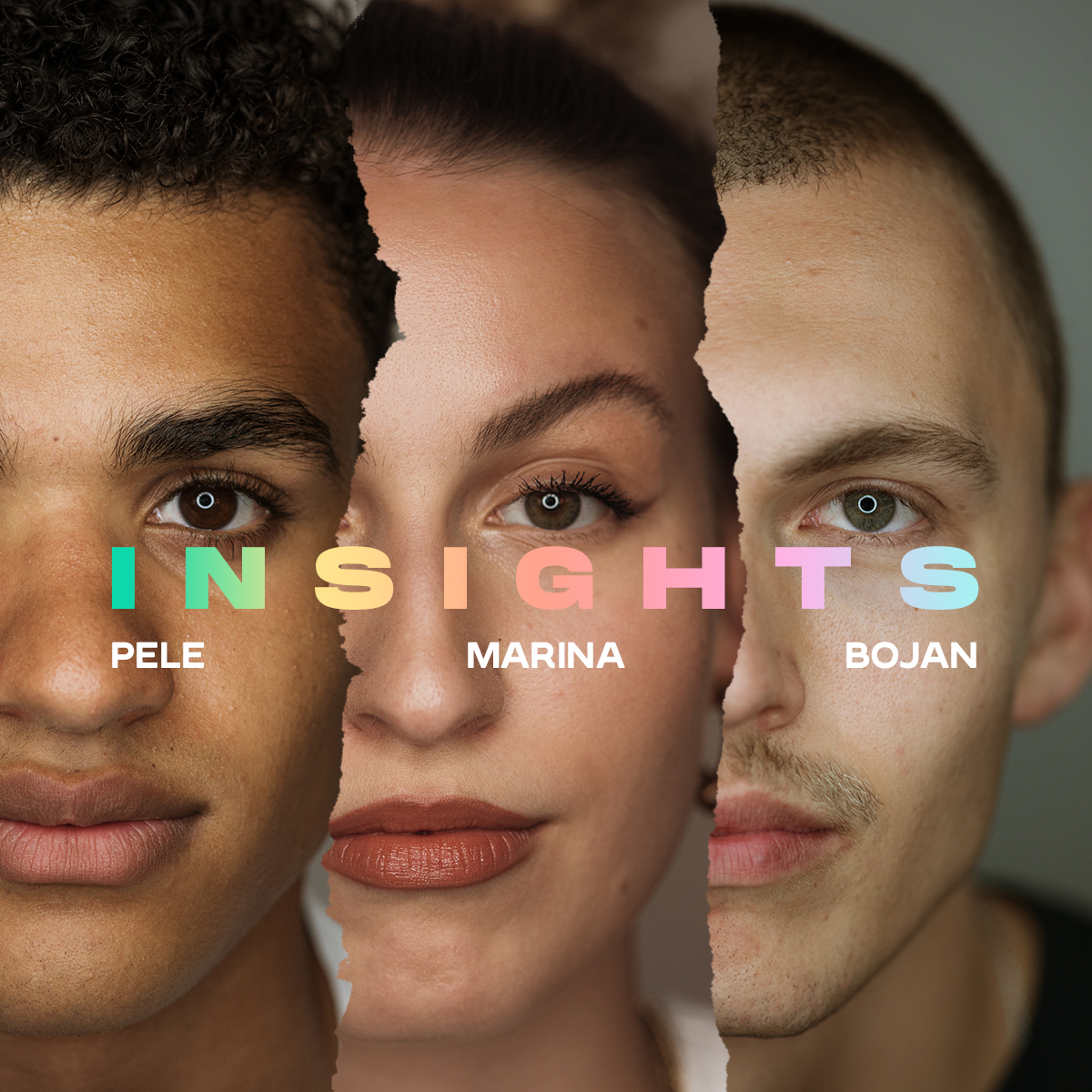
Whom/what community would you like to uplift?
Marina: Women. Women of all colors, all sexual orientations and gender identities. Women are incredible. Females tend to be underestimated, judged harshly and I think we sometimes tend to be too hard on ourselves. Being a woman is such an impactful and powerful experience, but society tends to not give females enough credit for their capabilities. I want to empower females and make them feel self-secure. It’s about time that all genders are finally equal.
Pele: The Black Community, but that’s obvious. Apart from that I want to empower women and give them space because I believe that women are much more competent in many areas, such as crisis management. Feminist values should be integrated into the school system, because the disadvantage of women is relatable for everyone, because everyone has women in their lives. Understanding the proximity of discrimination in your immediate environment allows you to understand that there are many other groups who are excluded for other reasons. So I think feminism is a good starting point.
Bojan: The LGBTQ + community and everyone affected by racism and sexism. I see myself as someone who can bridge the gap because I have access to different communities, I think I can open certain doors and establish connections.
